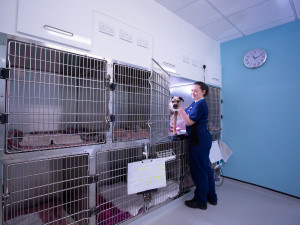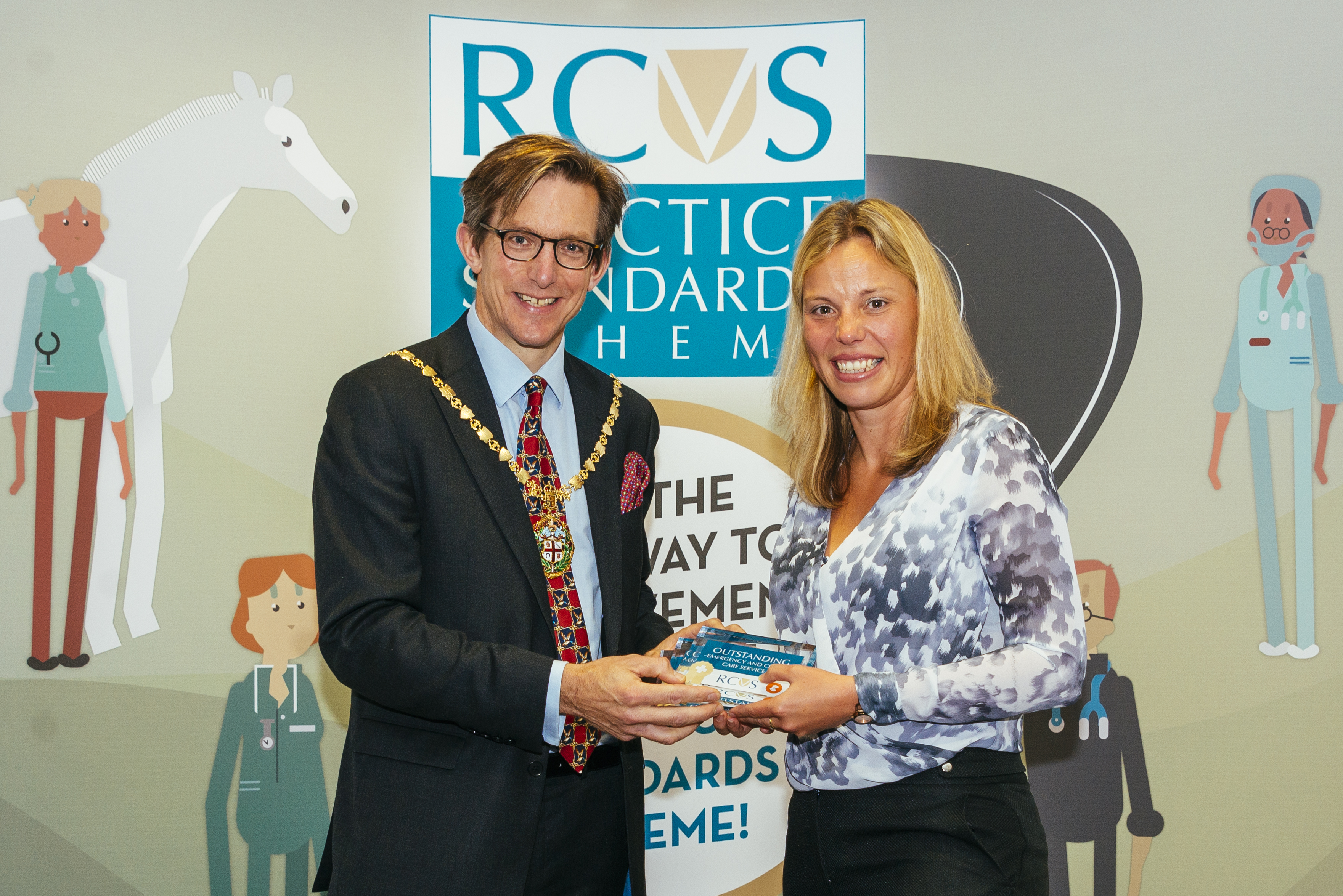Fifteen years after Racheal landed her first nursing job, she reflects on her journey to senior leader at Vets Now
Racheal Marshall is proof positive that there’s no glass ceiling for vet nurses.
As Vets Now’s head of clinical nursing, she ensures our nursing teams always adhere to the highest clinical and professional standards.
Her job also involves training the next generation of nurses and helping those already in the company make the most of their potential.
It’s a senior leadership role that comes with a lot of responsibility.

Interested in a vet nursing career with Vets Now?
Click the link below to search through our latest vacancies near you.
Search JobsBut that’s something Racheal, who is also chair of the RCVS VN council, thrives on, as she explains: “I have a varied role which involves overseeing the Nursing Edge programme, looking at the clinical and professional standards of the company, and ensuring our clinical staff have the right equipment to do their jobs effectively.
“I also do a lot of work with external bodies such as the RCVS so I get to meet lots of different people from across the profession, which is fantastic.
“But I particularly enjoy meeting new vet nurses who join the company and going to colleges to speak to student nurses and making them aware that there are fantastic career opportunities in emergency and critical care.
“We have a strong clinical support structure and leadership team here, and both vets and vet nurses are involved in decision-making at every level of the business from our clinics through to the company board.
“It’s only from speaking to nurses in the clinics, and seeing how they work, that we can implement practical procedures that will not only improve the clinical standards but also make their work in-clinic easier.”

Racheal, who lives on small farm near Doncaster, came into vet nursing almost by accident. As the daughter of a farmer, her school careers adviser recommended she embark on a course in agriculture once she had completed her A-levels.
But, unfortunately, she graduated just as the foot-and-mouth tragedy was taking hold and jobs in agriculture were at a premium. Racheal accepted an offer to work in a mixed practice vet and “sort of fell into” working with small animals.
“I really enjoyed it and so decided to become a vet nurse,” she said of that first exposure to veterinary work. “I wasn’t one of those people who knew from a young age that they wanted to work in veterinary medicine.
“It was more a ‘that looks interesting, I’ll give that a go’ and I fell in love with it.”
Racheal qualified as a vet nurse in 2003 and worked in a busy mixed practice for three years, progressing to senior nurse.
After that, she worked as a lecturer in veterinary nursing and animal management at York’s Askham Bryan College. She returned to clinical work in 2008, joining our Bradford clinic as an RVN before becoming a senior nurse.
Rachael Marshall Head of clinical nursing“Nurses train hard and we have a lot of skills, but sometimes you can be in a practice where those skills aren't being used to their full potential."
She was later promoted to district manager before taking up her current position in 2014. Racheal was excited about the head of clinical nursing job, she said, because it would allow her to use her skills and working background to help vet nurses succeed.
“Nurses train hard and we have a lot of skills, but sometimes you can be in a practice where those skills aren’t being used to their full potential. One of the best things about Vets Now is we encourage our nurses to do what they’ve been trained to do.
“We’re very supportive of vet nurses. We want to give them opportunities to progress through the company and join the already high number of people in senior roles who come from a veterinary nurse background.”
Racheal has had a lot of proud moments working for Vets Now, particularly while still on the front line, but she said launching our innovative Nursing Edge programme has probably been her biggest achievement.
It’s an eight-week intensive induction programme that’s designed for vet nurses who want to work in emergency but would like some extra training first.

She said: “I devised the programme three years ago and the thinking behind it was that we’ve always had interest from newly-registered nurses, with little or no experience, who are keen to do emergency work.
“We’d often tell them to come back in six months but, in many cases, they either didn’t return at all or came back with the wrong type of experience as the practices they were in just didn’t see enough emergency cases.
“Our solution was to set up a programme that would take nurses straight from college, who had good day-one skills, and give them all the support they need to go into an emergency setting and be successful.”
While there are no plans to run a Nursing Edge programme in the very near future, Racheal is keen to stress that vet nurses with limited experience of emergency work should not be put off from contacting us.
She added: “We are able to offer bespoke training programmes for the right candidates.
“Those who are successful will also be given the opportunity to work alongside an experienced nurse within a clinic to see how it all works and to give them as much hands-on experience as possible.
“There’s no way we can teach people in just a few weeks how to deal with everything that walks through our doors because even the most experienced vet nurses see things they’ve never seen before.
“What we do aim to do, however, is to give them the confidence to deal with those situations and quickly figure out how to treat the problem effectively.”
So what can a vet nurse expect in their first year of working with Vets Now and what advice would Racheal give to someone considering following in her footsteps?
“Vet nursing in an emergency clinic is never mundane,” she said. “You never know what’s going to walk through the doors so it’s always a case of expecting the unexpected. They’ll get to use all their nursing skills – vets use their nurses a lot here, especially when it’s busy.
“But on top of that, they’ll get a lot of training as part of the induction.
“My advice to anyone considering working as a vet nurse would be to go for it. You will benefit in lots of different ways, and while you will see some sad cases you’ll also see some truly amazing animals make a recovery.
“I’ve never regretted the decision to become a veterinary nurse. If I had to go back and do it all over, I would do exactly the same again.”
